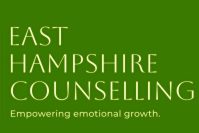Understanding Core Beliefs
What are Core Beliefs?
Core beliefs are the fundamental perceptions we hold about ourselves, others, and the world around us. They are deeply ingrained and often formed in early childhood, influenced by our experiences, relationships, and environment. Core beliefs shape our thoughts, feelings, and behaviours, guiding how we interpret situations and interact with others.
Types of Core Beliefs
- Positive Core Beliefs: These are empowering beliefs that enhance self-esteem and foster resilience. Examples include:
- “I am capable.”
- “I am deserving of love and happiness.”
- Negative Core Beliefs: These beliefs often lead to feelings of inadequacy or unworthiness. Examples include:
- “I am not good enough.”
- “I am unlovable.”
How Core Beliefs Affect Us
Core beliefs significantly influence: - Emotions: Our beliefs can create feelings of joy, sadness, anger, or anxiety.
- Thought Patterns: Positive beliefs may foster constructive thinking, while negative beliefs can lead to distorted thinking patterns.
- Behaviours: Core beliefs can dictate how we react in social situations and challenge our ability to achieve goals.
Identifying Your Core Beliefs
Recognizing your core beliefs is the first step toward understanding their impact on your life. Here are some questions to help you identify them:
- What do I believe about myself?
- How do I view my relationships with others?
- What beliefs do I unconsciously act upon in challenging situations?
Exercise: Core Belief Inventory
- Reflect on a recent situation that caused strong emotions (e.g., anger, sadness).
- Jot down the thoughts that went through your mind during that time.
- Identify any underlying beliefs linked to those thoughts.
Challenging Negative Core Beliefs
Once you have identified your negative core beliefs, consider the following strategies to challenge and change them:
- Reframe Your Thoughts: Replace negative beliefs with positive, affirming statements. For instance, change “I am not good enough” to “I learn and grow every day.”
- Gather Evidence: Assess the validity of your core beliefs by collecting evidence for and against them.
- Seek Support: Talking to a therapist or counsellor can help you process and modify your beliefs effectively.
When to Seek Help
If you find that your core beliefs significantly impact your mental health or daily functioning, it may be beneficial to seek support from a professional. Therapy can give you the tools and techniques to challenge and reshape your beliefs.
Additional Resources
- Books:
- “The Untethered Soul” by Michael A. Singer
- “Mind Over Mood” by Dennis Greenberger and Christine A. Padesky
- Websites:
- East Hampshire Counselling
- Support Services:
If you need immediate support or guidance, consider contacting a counselling service. East Hampshire Counselling offers face-to-face ,telephone or online sessions You can reach out to:
Conclusion
Understanding and recognizing core beliefs is an essential step toward personal growth and emotional well-being. By challenging negative core beliefs and reinforcing positive ones, you can improve your mental health and lead a more fulfilling life. Remember that change takes time, and it is okay to seek help along the way.
